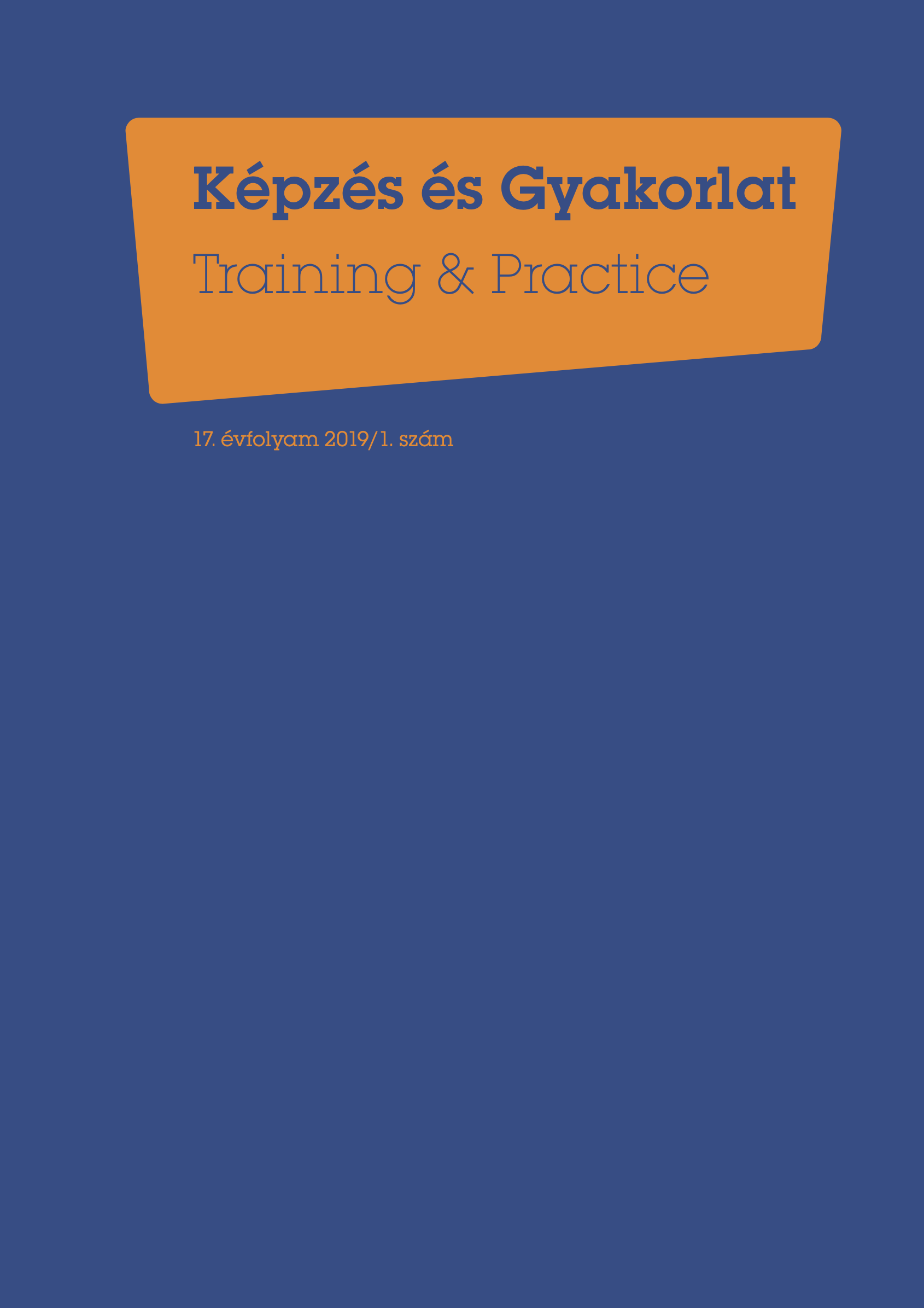The methodological establishment of the research aimed at the exploration of health condition and health behavior of educators working in early childhood education
DOI:
https://doi.org/10.17165/TP.2019.1.3Abstract
The research of health condition and health behavior of Educators working in Early Childhood Education has been a neglected area until recently. However, because of their being role models, the exploration of this field is of high priority. During our cross-sectional, quantitative research 1,010 kindergarten teachers, infant educators, nurses and teaching assistants were examined. According to our findings we can see that the health behavior of the participating teachers is more positive than the population as a whole. On the other hand, a relatively large proportion of them suffer from chronic diseases like back-, waist- and other joint problems, which can be related to the higher physical strain caused by their working environment.
References
Csabai, M. – Molnár, P. (1999). Egészség, betegség, gyógyítás. Budapest: Springer Orvosi Kiadó.p. 326. ISBN: 9638455550
Danis, I. – Farkas, M. – Oates, J. (2011). Fejlődés a koragyermekkorban: Hogyan is gondolkod(j)unk róla?. In: Balázs, I. (Ed.), A koragyermekkori fejlődés természete – fejlődési lépések és kihívások. Biztos Kezdet Kötetek II. Budapest: Nemzeti Család- és Szociálpolitikai Intézet. pp. 24–67.
Kopp, M. – Pikó, B. (2006). Az egészséggel kapcsolatos életminőség pszichológiai, szociológiai és kulturális dimenziói. In: Kopp, M. – Kovács, E. (Ed.), A magyar népesség életminősége az ezredfordulón. Budapest: Semmelweis Kiadó. pp.10–19.
Kopp, M. – Skrabski, Á. (é.n.). Magyar lelkiállapot az ezredforduló után. Távlatok : a magyar jezsuiták folyóirata, 86, 2009. karácsony, pp. 32–52. [online] http://www.tavlatok.hu/86/86kopp_skrabski.pdf [2018. március 27.]
Lalonde, M. (1974). A new perspective on the Health of Canadians. Ottawa: Minister of Supply and Services Canada
Meleg, Cs. (1998). Az egészség értékrendszerünkben elfoglalt helye. Egészségnevelés, 39 évf. 4. sz. pp. 155–159.
Murray, C. J. L. – Lopez, A. D., (Eds.), (1996). The Global burden of disease. Boston – Geneva: World Health Organization, Harvard School of Public Health & World Bank.
OECD (2013). Investing in high-quality early childhood education and care (ECEC). [online] https://www.oecd.org/education/school/48980282.pdf [2018. március 22.]
Pikó, B. (2002). Egészségszociológia. Budapest: Új Mandátum Könyvkiadó
Steiner, R. (1989): Zweiter Vortrag, Torquay, 12. August 1924. In: Steiner, R.: Die Kunst des Erziehens aus dem Erfassen der Menschenwesenheit. 5. Auflage. Dornach: Rudolf Steiner Verlag, pp. 25–26. http://fvn-archiv.net/PDF/GA/GA311.pdf [2018. április 3.]
Szarvasné, M.V. – Benkő, Zs. (2006). Főiskolai hallgatók egészségképe. Összehasonlító vizsgálat. Magyar Pedagógia, 106. évf. 2. sz. pp. 107–127.
Szilvási, L. (2011). Nézőpontok, elméletek, gyakorlatok – A magyar Biztos Kezdet Program előzményei és megvalósulása. In: Balázs, I. (Ed.), A génektől a társadalomig: a koragyermekkori fejlődés színterei. Biztos Kezdet Kötetek I. Budapest: Nemzeti Család- és Szociálpolitikai Intézet. pp. 28–75.
Varsányi, P. – Vitrai J. (Ed.), (2017). Egészségjelentés 2016. Budapest: Nemzeti Egészségfejlesztési Intézet http://www.egeszseg.hu/szakmai_oldalak/assets/intezetunkrol/egeszsegjelentes-2016_uj.pdf [2018. március 28.]
Downloads
Published
Issue
Section
License
Copyright (c) 2019 Fináncz Judit, Csima Melinda

This work is licensed under a Creative Commons Attribution-NonCommercial-NoDerivatives 4.0 International License.












